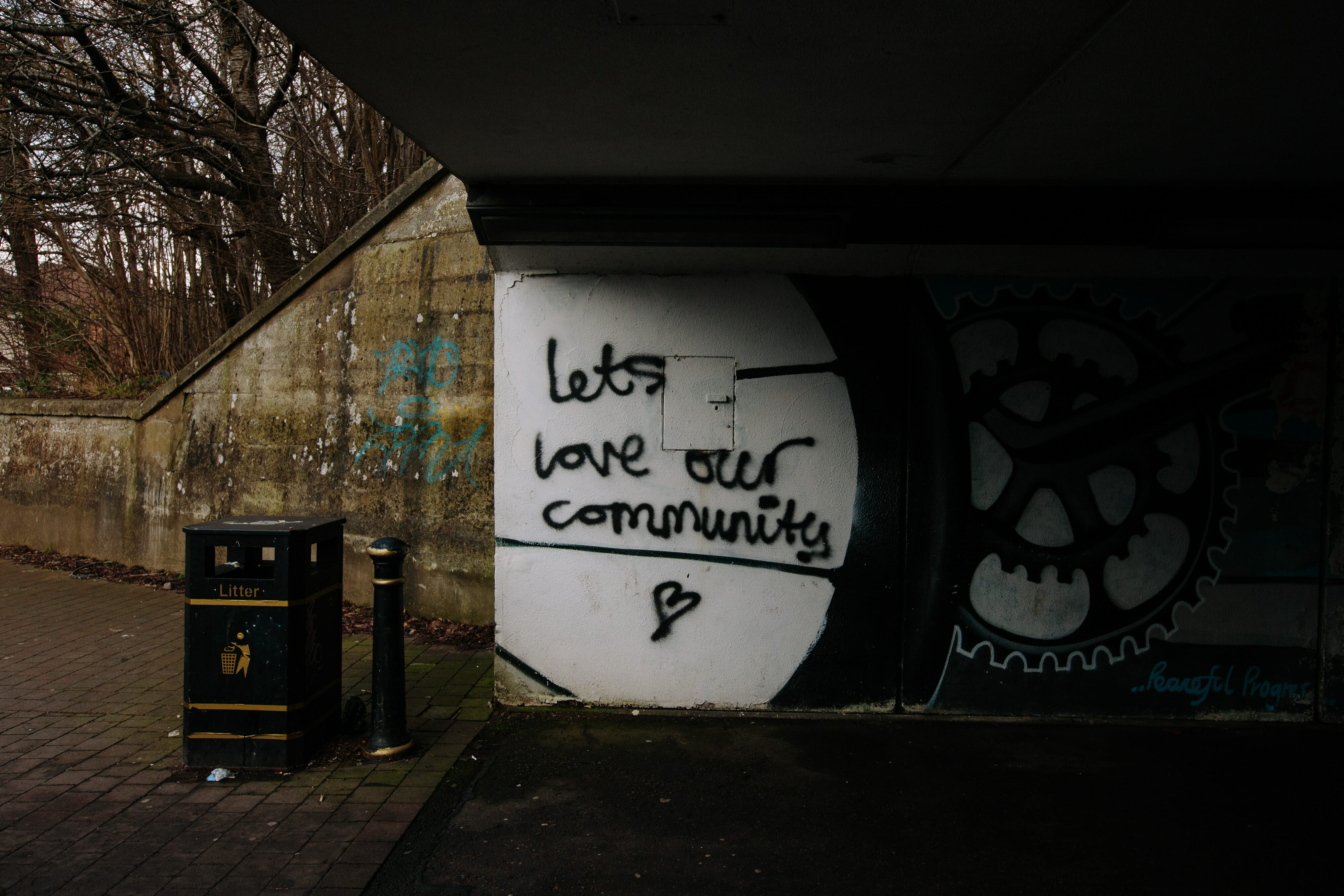
Photo by Mike Erskine on Unsplash
Citizens with the saints – recovering the gospel’s political claims
Curtis Ramsey-Lucas
November 13, 2019
“Sisters and brothers” – it’s a widely used address in local churches that some pastors are now questioning.
In a recent Facebook group post, Kathy Donley, pastor of Emmanuel Baptist Church in Albany, New York, asked for alternative ways to address her congregation.
“I’m becoming aware that this phrase no longer sounds as inclusive as it once did,” she noted while seeking language that would “include and welcome and love those who understand themselves to fall outside the categories of brothers and sisters.”
In response, some suggested “siblings,” or “siblings in Christ.” Others “beloved,” “beloved kin,” or “kindred.” “Friends,” “dear friends,” and “children of God,” were also offered as alternatives or for use in conjunction with “sisters and brothers.”
Such familial references are well established in scripture. Paul’s letters are replete with references to “brothers and sisters” and “my beloved” while John addresses his readers simply as “beloved.”
Less common, though no less significant, are explicitly political references, as when Paul calls the Ephesians “citizens with the saints” (Ephesians 3:19) and those in Christ “ambassadors for Christ” (2 Corinthians 5:20), and Peter writes that Christians are a “royal priesthood, a holy nation, God’s own people” (1 Peter 2:9).
It is fitting to use familial language to describe the church. After all, in the same instance in which Paul calls the Ephesians citizens with the saints, he also notes they are “members of the household of God.”
However, exclusive use of such language reinforces an image of the church as a family writ large, obscuring the political nature of the church. The church is both a household and a body politic, or polis, composed of those whose citizenship is in heaven, that “republic,” in the words of Augustine, “whose founder and ruler is Christ” (City of God, II, 21).
“The practices of the body of Christ inculcate in us a social imaginary, orienting us to a telos that is nothing less than the kingdom of God,” James K. A. Smith argues in Awaiting the King: Reforming Public Theology. “Worship is the “civics” of the city of God, habituating us as a people to desire the shalom that God desires for creation.”
Smith notes, “The church is not a soul-rescue depot that leaves us to muddle through the regrettable earthly burden of “politics” in the meantime; the church is a body politic that invites us to imagine how politics could be otherwise.”
Imagining how politics could be otherwise begins with recovering the political claims embedded in the familiar language and practices of Christian worship. For example, praying “thy kingdom come” and anticipating the time when the nations will walk by the light of the Lamb (Revelation 21: 23-25).
Imagining how politics could be otherwise begins with recovering the political claims embedded in the familiar language and practices of Christian worship.
In baptism, we declare our allegiance to Jesus Christ as “Lord.” Celebrating the Lord’s supper, we break the bonds that define us as citizens of the nations of this earth and are joined together through bonds of loyalty to the one to whom we pledge allegiance.
Recovering and living in alignment with the political claims embedded in the gospel, will draw the attention and even ire of the powers and principalities of this world.
In Against Christianity, Peter Leithart notes, “So long as the church preaches the gospel and functions as a properly ‘political’ reality, a polity of her own, the kings of the earth have a problem on their hands…As soon as the church appears, it becomes clear to any alert politician that worldly politics is no longer the only game in town. The introduction of the church into any city means the city has a challenger within its walls.”
We see this clearly in the early accounts of the church in Acts as when Jason, having offered hospitality to Paul and Silas, is dragged before the city authorities and accused of conspiring with those “…who have turned the world upside down… acting against the decrees of Caesar, saying that there is another king, Jesus” (Acts 17:6-7). We see this today in places where Christians face marginalization and persecution from state and non-state actors for their allegiance to Christ.
In my capacity as editor The Christian Citizen, I often find myself arguing that the separation of church and state doesn’t mean the separation of faith and politics. As valid as that argument may be, it misses the larger point that to be Christian is not about maintaining a kind of dual citizenship—one earthly, the other heavenly—and claiming the right to be good and loyal citizens of both. Being citizens of heaven is a temporal rather than spatial reality. It’s not about where you live as much as what timeframe you live in.
Being citizens of heaven is a temporal rather than spatial reality. It’s not about where you live as much as what timeframe you live in.
In Mark’s gospel, Jesus begins his ministry by proclaiming, “The time is fulfilled, and the kingdom of God is at hand; repent and believe in the gospel.” (Mark 1:15) The time is fulfilled. The kingdom of God is at hand. As citizens of heaven, this penultimate and ultimate reality governs how we exercise our temporal, or temporary, citizenship.
Curtis Ramsey-Lucas is editor of The Christian Citizen, a publication of American Baptist Home Mission Societies. Reprinted with permission of EthicsDaily.com.
The views expressed are those of the author and not necessarily those of American Baptist Home Mission Societies.


